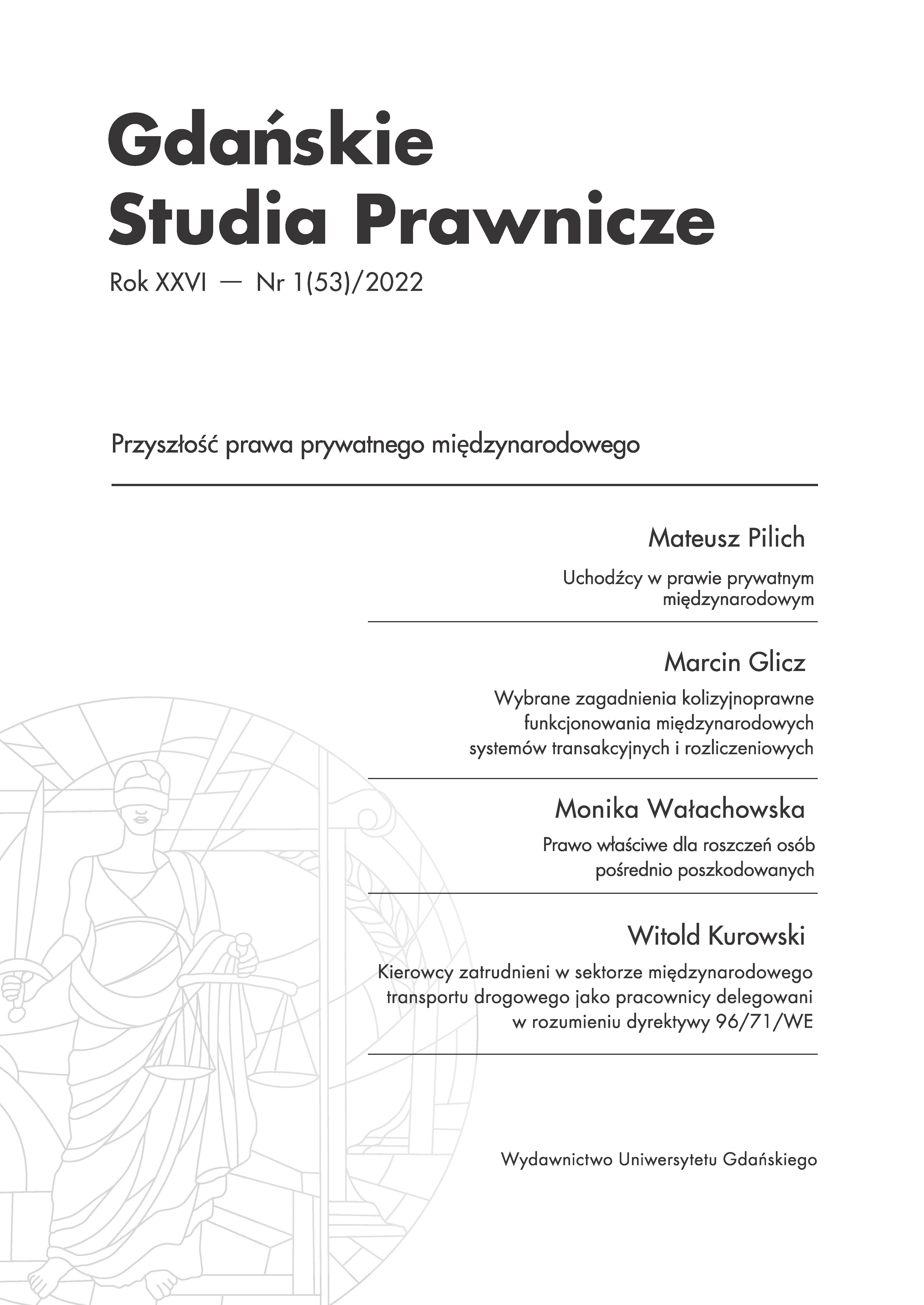Kierowcy zatrudnieni w sektorze międzynarodowego
transportu drogowego jako pracownicy delegowani
w rozumieniu dyrektywy 96/71/WE
Drivers Working in the International Road Transport Sector as Posted Workers within the Meaning of Directive 96/71/EC
Judgment of the Court of Justice (Grand Chamber) of 1 December 2020 in Case C-815/18 Federatie Nederlandse Vakbeweging v Van den Bosch Transporten BV, Van den Bosch Transporte GmbH, Silo-Tank Kft
Author(s): Witold KurowskiSubject(s): Law, Constitution, Jurisprudence
Published by: Wydawnictwo Uniwersytetu Gdańskiego
Keywords: posted workers; freedom to provide services; drivers in the international road transport; sufficient connection; driver’s work within the territory of a Member State; cabotage operations; Directive 96
Summary/Abstract: The paper provides a comment on a recent crucial ruling concerning the Posted Workers Directive(Directive 96/71/EC). In the judgement in the case C–815/18 (Federatie Nederlandse Vakbewegingv. Van den Bosch Transporten BV, Van den Bosch Transporte GmbH, Silo-Tank Kft), the Courtof Justice of the European Union provided an interpretation of the Directive 96/71/EC concerningthe scope of the notion “posted workers”. The Court assumed that the directive on the postingof workers in the framework of the provision of services must be interpreted as applying to the transnational provision of services in the road transport sector. The premise for recognizingan employee working as a driver in the international road transport sector as a posted workeris that the performance of that employee’s work has a “sufficient connection” with the territoryof a Member State other than the one in which he/she usually carries out work in the performanceof his/her employment contract (host Member State). This sufficient connection shouldbe determined by the driver’s activities in the territory of that Member State. It depends onthe nature of the activities performed, the degree of connection of these activities with theterritory of the Member State in which the driver operates, and the share of these activities inthe entire transport service. This sufficient connection exists in the case of cabotage operationswhich are performed exclusively on the territory of the host Member State. Therefore, a driverwho carries out cabotage operations may be considered a posted worker within the meaningof the Directive 96/71/EC. The second issue discussed in the paper is the choice-of-law problemrelated to the employment contract. If the parties have not chosen it, the applicable law shouldbe determined under art. 8 (2) of Rome I Regulation which stipulates that an individual employmentcontract shall be governed by the law of the country in which or, failing that, from whichthe employee habitually carries out work in the performance of the contract. In some cases,considering the nature of work in the international road transport sector, the driver’s activities inthe territory of one country are so vital that this country should be treated as the one “in whichor from which” the employee normally works and not only to which the driver was posted withinthe meaning of the Directive 96/71/EC.Keywords: posted workers; freedom to provide services; drivers in the international road transport;sufficient connection; driver’s work within
Journal: Gdańskie Studia Prawnicze
- Issue Year: 1/2022
- Issue No: 53
- Page Range: 171-186
- Page Count: 16
- Language: Polish

